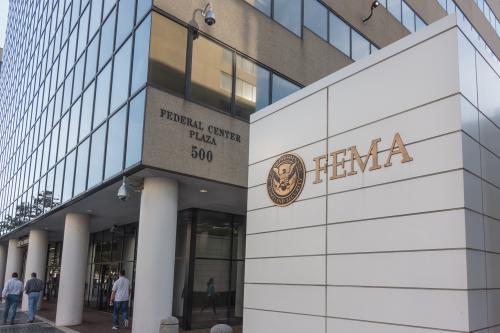Chinese President Xi signs more than $10 billion in business deals ahead of the China-Africa Forum
Ahead of the two-day Forum on China-Africa Cooperation (FOCAC), which begins in Johannesburg today, December 4, Chinese President Xi Jinping traveled to Zimbabwe and South Africa, where he held talks with Presidents Robert Mugabe and Jacob Zuma, respectively, and signed an array of deals aiming to boost Chinese trade and investment ties with the countries. In Zimbabwe, Xi formalized 10 business and investment agreements to provide close to $4 billion in Chinese financing to the country’s agriculture, aviation, energy, infrastructure, and telecommunications sectors. These agreements come at a critical time for Zimbabwe’s ailing economy, as crumbling electricity infrastructure, high unemployment, and food shortages have compelled Mugabe to request financial assistance from international donors to help support his country’s economic growth—which is projected at a mere 2.7 percent in 2016. Still, some analysts question whether Chinese financing will be enough to stabilize Zimbabwe’s weakening economy. Next, in South Africa, Xi signed 26 more infrastructure deals amounting to nearly $6.5 billion. Approximately $2.5 billion of this financing will go to South Africa’s state-owned railway firm, while $500 million will be directed toward the state power firm (to expand nuclear cooperation), supplementing the further $930 million of financing for the energy, metals, and pharmaceuticals industries.
The triennial FOCAC comes at a unique moment in the China-Africa relationship as China’s economic slowdown has weakened Chinese demand for African exports, pushing China toward a trade surplus with Africa—despite China’s purported commitment to resolving industrial surpluses by supporting more development abroad. For more information on the upcoming FOCAC and priorities for the China-Africa partnership, please see the Foresight Africa 2015 brief by Yun Sun, “The Sixth Forum on China-Africa Cooperation: New Agenda and New Approach?”
In a historic vote, Roch Marc Christian Kaboré is elected President of Burkina Faso
This week, Roch Marc Christian Kaboré was elected president of Burkina Faso in the nation’s first election since Blaise Compaoré was ousted last year after having ruled the country for 27 years. The poll was originally set for October but was postponed after a failed coup by the presidential guard loyal to Compaoré. These elections were the first free and open elections in Burkina Faso’s history; they also mark the first elections without an incumbent president on the ballot. Since the country got its independence in 1960, every ruling leader has come to power through a coup. Despite a few setbacks this year, the poll took place in a well-organized setting. The elections saw a high turnout, as 60 percent of the country’s 5.5 million voters participated and chose the president among 14 candidates.
Kaboré won the elections with 53.5 percent of the votes. Kaboré previously served as prime minister and head of the National Assembly under Blaise Compaoré. In early 2014, Kaboré, in opposition to the constitutional amendment that would allow Compaoré to run for a third term, left Compaoré’s political party and created an opposition one. The popular consensus—even among supporters of losing candidates—is that this election was an important step towards consolidating the country’s democracy.
Africa makes some progress in climate talks at COP21 in Paris
Negotiation talks on climate change issues are in progress at the Conference of Parties (COP) in Paris this week. In the words of United Nations Secretary-General Ban Ki-moon, Africa has an enormous stake in the success of this global event aimed to reach a universal agreement to limit global warming. However, though “strong momentum” towards a meaningful agreement has been gained, the secretary-general stressed that key political issues remain unresolved. One of these issues includes financing of climate change mitigation and adaptation policies. On the first day of the talks, 11 donor nations pledged about $250 million of new financing for adaptation support to the most vulnerable countries. More specifically for Africa, France announced it will provide $2 billion (one-third of the amount designated for electrification projects in Africa) to help develop renewable energy in Africa.
Domestically, the African Union announced a plan to mobilize $20 billion to develop at least 10 gigawatts of renewable energy on the continent by 2020. The African Development Bank would host the unit and act as the trustee. In addition, heads of the world’s largest development banks pledged to work together to substantially increase climate investments and ensure that development programs going forward consider climate risks and opportunities. Side agreements include World Bank pledges of $200 million for construction of a dam in Kenya, $2.2 billion for conservation of the Lake Chad basin; the French government’s pledge of roughly $54 million to Senegal for protecting those at risk of flooding; and the European Union’s pledge of $125 million to support El Niño-affected regions.
For more information on Africa’s common position for the COP21 and the continent’s specific climate-related challenges, refer to Amadou Sy’s brief, “Financing Adaptation and Mitigation in the World’s Most Vulnerable Region.”



Commentary
Africa in the News: FOCAC begins, Burkina Faso elects president, and COP21 mobilizes climate financing
December 4, 2015